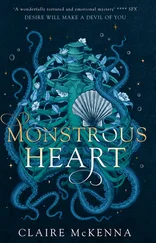“There are more dead eagles today,” Jack said suddenly.
Ned nodded but said nothing.
* * *
JACK KNOCKED QUIETLY and entered his stateroom. Gustavo was seated at his metal desk but with the noticeable improvement of overhead lights.
“You missed the abandon ship drill,” Jack said, with a smile he hoped was disarming. “The Coasties took attendance. You’re gonna get busted.”
Gustavo continued to stare straight ahead.
“Look, I know these close quarters aren’t easy,” Jack offered. “I’m sure you’re not used to having another man stuck to you like glue.”
Gustavo blinked rapidly, like he was coming out of a dream or the daze of a head injury.
“I am used to it,” he said. “Or, I was.” Gustavo struggled to say the simple words: “I had a twin.”
As he leaned forward to stand, a chain spilled free of his shirt collar and dangled from his neck. Attached to the end was a crushed piece of metal: a spent bullet. Gustavo crossed the small room, climbed into his bunk, and drew the curtains closed.
Jack couldn’t imagine the loss of a twin sibling, but he could understand the need to retreat into grief.
In the silence that followed, tugboat engines revved as they pulled Healy away from the dock. The last Arctic West expedition was underway.
* * *
HEALY SAILED OUT of Resurrection Bay and into the Gulf of Alaska. Keeping land in sight, Captain Weber navigated coastal waters until Healy reached the base of Alaska’s long-tail archipelago at Katmai National Park. Jack was on deck for a few hours before sunset. Coasties bustled about but were friendly about interruptions. One pointed to the view from Healy ’s starboard side and said that the park drew lots of tourists with its brown bear population. Jack stood by the deck railing and trained his lens at dark volcanic rock, emerald forests, and blue-toned mountains crowned with snowcaps. He was all business with landscapes, like a jeweler inspecting a diamond. People were another matter entirely. He fell in love with everyone behind the camera: women and men, old and young. The day he didn’t love and empathize with his subjects was the day he had to quit photojournalism.
Jack heard the eagle’s splash before he saw it. He zoomed his lens to the highest magnification and saw a bald eagle with a white tail and crown floating on the surface of the water. With its hollow bones and feathers, submergence was slow and difficult to watch. Jack thought he saw the bird blink before slipping just below the surface. Air bubbles unsettled the water. The eagle was alive but drowning, motionless instead of struggling to live.
* * *
JACK FOUND DR. MAYA GUTIÉRREZ in the science conference room, where more than twenty scientists were gathered. One of them stood at the front of the room. He was a stout white-haired man with a full beard that looked like a cross between a college professor and Santa Claus.
“May we help you?” he asked Jack.
Jack looked to Maya, who wordlessly stood and joined him in the hallway.
“We’re kinda busy right now,” she said quietly.
Jack regarded Maya’s black eyes, unplucked eyebrows, and full lashes. Her unwavering gaze felt open and intense at the same time.
“You’re staring.”
“Sorry,” Jack stuttered. “First time I’ve seen your eyes without glasses. What… What’s wrong with the eagles?” he asked. “Why are they dying like this?”
After Jack explained what he saw, Maya’s tone changed. She looked sheepish when she shook her head.
“But you must have some ideas?” he pressed.
“There was a fishing town on an island in Japan…” she whispered, and continued to describe the once healthy ecosystem of Minamata Bay. In the 1950s, mullet, shad, and lobsters started to disappear. Dead fish rose to the surface one by one; birds dropped from the sky. The cats of the village began to spastically dance and bash themselves against walls. They jumped into the sea and drowned. Then the fishermen and their families—and their newborn babies—exhibited damaged nervous systems. Their bodies were racked by convulsions that left them speechless and immobile. And then they died.
“They called it Minamata disease,” Maya said. “It was caused by severe mercury poisoning that destroyed the brain’s cerebellum, for starters.”
The people of Minamata all knew that wastewater from the local Chisso chemical plant was the cause. But they were poor, and—in the eyes of Chisso, the chemical industry, and the Japanese government—expendable. Evidence was suppressed while Chisso steadily increased production and the resulting poisonous wastewater. The strange Minamata disease continued to spread to an estimated ten thousand people.
“I don’t know if they’re related,” Maya was quick to interject, “but there have been documented cases like what we’re seeing right now.”
“Could it be the comet?” Jack whispered.
Maya tilted her head and squinted her eyes at him. She asked how a near-Earth object farther out than Mars could be killing eagles. Jack shrugged and pouted with his lower lip. He thought of his own premonitions.
“Maybe some things can’t be explained by science,” he said defensively.
“All phenomena have cause and effect,” Maya stated, but had to add, “we just don’t always understand what those causes and effects are.”
Jack sighed and shook his head once.
“I’ll let you get back to your meeting,” he said, just as Maya was about to take a step closer.
Healy in the Gulf of Alaska August 9 T-minus 176 days to launch
MAYA WAS SURPRISED to see Jack waiting patiently at the front of the breakfast line at 0645. His casual-cool clothes and easy manner didn’t identify him as an early riser, but the camera hanging from his neck did. As a photographer, his agenda was dictated by the sun, and being late had consequences.
Jack smiled when their eyes met as they filled up plates with food. Maya’s stomach and heart fluttered on reflex. She nodded hello but retreated to the small side of the mess deck, where the scientists gathered at three long tables. Jack tried to catch her eye again, but she studied her scrambled eggs and Tabasco sauce until he sat alone across the room.
The man’s forwardness could be explained by his profession; photographers made their subjects more comfortable in order to get what they wanted. And it wasn’t like Jack had lots of options when it came to flirting among ninety-three crewmembers and fifty-one scientists, excluding all the men and married women (she hoped Jack excluded married women). Either way, Maya told herself not to be flattered.
As soon as his attention was diverted, Maya stole a greedy glance. Jack had well-proportioned, angular features and a square jaw. His sandy hair wasn’t exactly blond, ginger, or light brown but was all three at once. There were crow’s-feet at the edges of his eyes that were paler than the surrounding, unlined skin. He must have a bad habit of squinting under the strong sun to get a good look at his surroundings.
From a distance, Jack was good-looking in a nondescript way until his features lit up with a smile; then he was gorgeous. Muy guapo! Maya’s mother would say out loud, in her Latina whisper. Maya didn’t respond to her mother’s prompts because good-looking men were mostly self-aware. The wealthier ones from good families, with polite manners and business suits, needed even less encouragement. Maya had bedded exactly three of these unattainable types, the sum total of her sexual activity in thirty-six years of age.
It wasn’t hard to interest men in a one-night stand. Maya was attractive in a well-formed way; most said “cute” and some said “pretty.” She was so petite and reserved, sipping her drink with watchful eyes, that those three men were each shocked to feel her body suddenly brush against a hip as she stood on tiptoe to whisper in their ear. Maya always left them with one less curiosity to satisfy.
Читать дальше












